Delegate Trinh Xuan An suggested that the Party, State and National Assembly should continue to focus on supporting income and salary regimes so that officers and soldiers can serve with peace of mind.
Speaking at the National Assembly's discussion session on socio-economics on the afternoon of May 31, delegate Trinh Xuan An (Dong Nai delegation) assessed that through the Government's data, a panoramic picture of the country's socio-economic situation in recent times has a full range of bright and dark colors, with many remarkable achievements but also many concerns and worries.
"It can be seen that the last months of 2022 and the beginning of 2023 are a very difficult and arduous period for our country," the delegate said, emphasizing that the achieved results show the solidarity and cooperation of the entire political system, including the significant supporting role of the National Assembly, the efforts of the people and businesses, especially the steering ability, efforts and endeavors of the Government and the Prime Minister in state management and administration in a period of myriad difficulties.
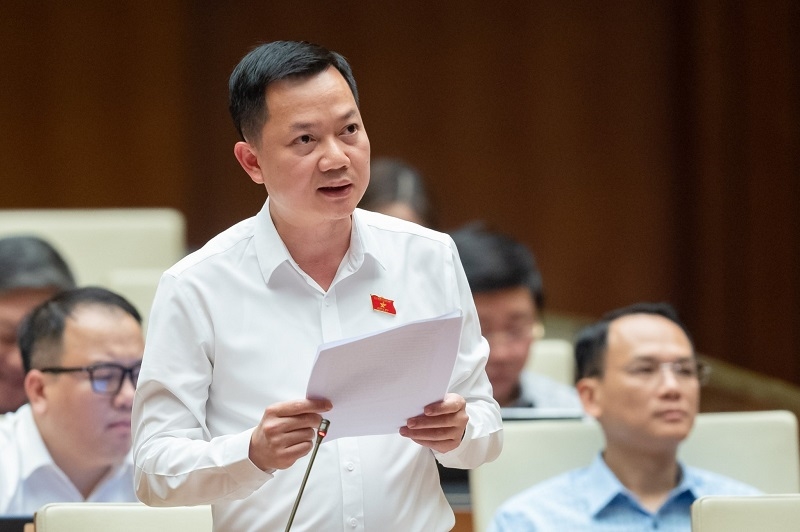 |
Delegate Trinh Xuan An: Propose that the Party, State and National Assembly continue to focus on supporting income and salary so that officers and soldiers can serve with peace of mind. |
Propose to continue focusing on income and salary support for military officers and soldiers
Delegate Trinh Xuan An suggested that the National Assembly continue to pay attention to the defense and security sector in the face of fluctuations, especially the Russia-Ukraine conflict and non-traditional security challenges, which show that we need to continue to make appropriate investments early and from afar to build the armed forces, build an increasingly strong People's Army, and create conditions for the Army to perform well its three functions: combat army, working army, and production army, both participating in socio-economic development and ensuring the task of protecting the Fatherland, being ready to fight and win.
Concerned about the salary regime for the staff and soldiers of the Vietnam People's Army, delegate Trinh Xuan An cited the example of a professional soldier driving a tank whose monthly salary is only half that of a Grab driver - this is very disadvantageous.
"In the current context when the entire army is making efforts to implement Resolution No. 05-NQ/TW of the Politburo on the organization of the Vietnam People's Army for the 2021-2030 period and the following years, based on the economic, political and social situation, in addition to paying attention to investing in equipment, I propose that the Party, State and National Assembly continue to focus on supporting income and salary so that officers and soldiers can serve with peace of mind," the delegate proposed.
To bring capital to the right place, directly to the business
In addition, delegate Trinh Xuan An also expressed concern when listing “through the report of the Fatherland Front, I counted 11 phrases “voters and people are worried and anxious”. In the inspection report of the Economic Committee, it was also stated that “Vietnam’s economy is in an extremely difficult period”.
Delegate Trinh Xuan An pointed out the figures showing that our country's GDP in the first quarter of 2023 reached 3.32%; he said that with such a low level, achieving the growth target of 6.5% set for the whole year requires great determination and effort. In particular, there must be urgent solutions, even beyond precedent, to rescue and support the business system.
Delegate Trinh Xuan An stated that the figures show that the business system is in a really difficult phase. The four bottlenecks that businesses are facing are: Shortage of orders, capital flow congestion; inadequate institutions, besieged by administrative procedures and legal risks that may be encountered during production and business activities.
Analyzing further, the delegate said that currently, businesses are "thirsty" for credit but cannot access capital. If they can access it, it is very difficult to disburse due to procedural loan conditions.
The government had to use administrative orders to request a reduction in interest rates (although they are still high), however, according to delegate Trinh Xuan An, reducing interest rates is not as important as accessing capital and putting that capital into production and business. Reducing interest rates and simplifying conditions and procedures for borrowing need to be substantial so that capital reaches businesses correctly, accurately and directly.
“Along with credit, it is necessary to continue to open up other capital channels such as bonds and securities. At the same time, it is necessary to continue to review institutions, simplify administrative procedures in a more substantial way and especially change the culture of “Businesses must beg and run”.
Accordingly, the government and managers need to show an attitude of “serving businesses”, proactively, sincerely, and sincerely coming to businesses to solve difficulties. Whatever needs to be done for the business system to develop should be done immediately, decided immediately, reducing the steps of asking for opinions and exchanging in circles between agencies and ministries, by the time the solution is reached, businesses will be “almost dead”.
According to delegate Trinh Xuan An, in the difficult context, it is necessary to reduce inspection and examination contents that make it difficult for businesses to avoid the situation where businesses have to struggle to explain up and down. In addition, there is a need for practical and specific solutions to prevent "the virus of fear of responsibility and the disease of not daring to do."
On the other hand, an important issue, according to delegate Trinh Xuan An, is that in management, it is necessary to strengthen the role and responsibility of ministries and branches, clarify the leading role, limit pushing responsibility to higher levels, not all content must be left to the Prime Minister to issue a telegram or the Government must issue a resolution to remove difficulties.
"In fact, the way we have handled the issues of queuing to buy gasoline, car registration, and struggling with fire prevention and fighting regulations in the past shows that the coordination responsibility of ministries and branches is very low," the delegate said, suggesting that the coordination role be strengthened in the coming time.
NGUYEN THAO
Source


![[Photo] Vietnam team's strength guaranteed for match against Laos](https://vstatic.vietnam.vn/vietnam/resource/IMAGE/2025/3/24/1e739f7af040492a9ffcb09c35a0810b)
![[Photo] Editor-in-Chief of Nhan Dan Newspaper Le Quoc Minh receives the delegation of Nhan Dan Daily](https://vstatic.vietnam.vn/vietnam/resource/IMAGE/2025/3/24/a9ac668e1a3744bca692bde02494f808)
![[Photo] Prime Minister Pham Minh Chinh dialogues with Vietnamese youth](https://vstatic.vietnam.vn/vietnam/resource/IMAGE/2025/3/24/7fd8b4735134417cbaf5be67ee9f88b1)
![[Photo] Prime Minister Pham Minh Chinh attends conference on ensuring security and order in the Northwest and surrounding areas](https://vstatic.vietnam.vn/vietnam/resource/IMAGE/2025/3/24/933ce5c8b72e4663bd6c6cd8be908f23)
![[Photo] The flavors of Southern Vietnamese traditional cakes](https://vstatic.vietnam.vn/vietnam/resource/IMAGE/2025/3/24/b220c9f405b945d798738ea0a94b29b8)
![[Photo] Overcoming the sun to remove temporary and dilapidated houses for poor households](https://vstatic.vietnam.vn/vietnam/resource/IMAGE/2025/3/24/824ba71165cc4f8fb6a3903ca0323e5d)
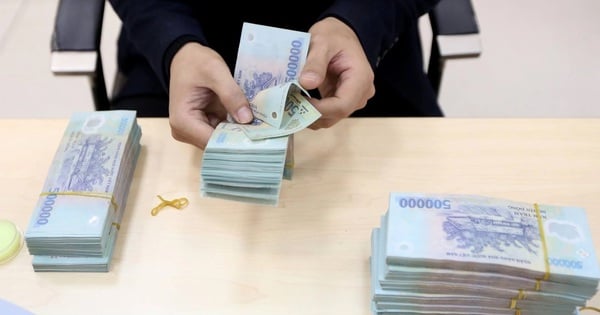





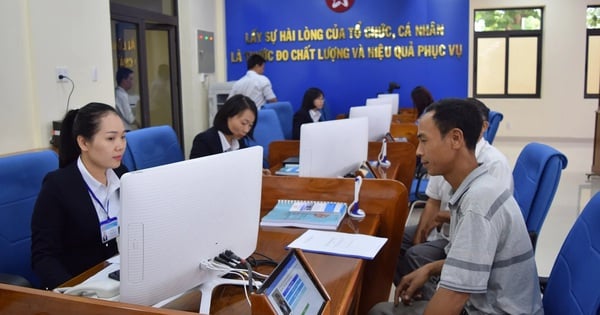


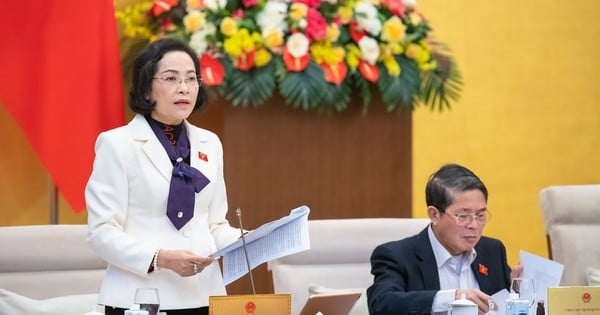












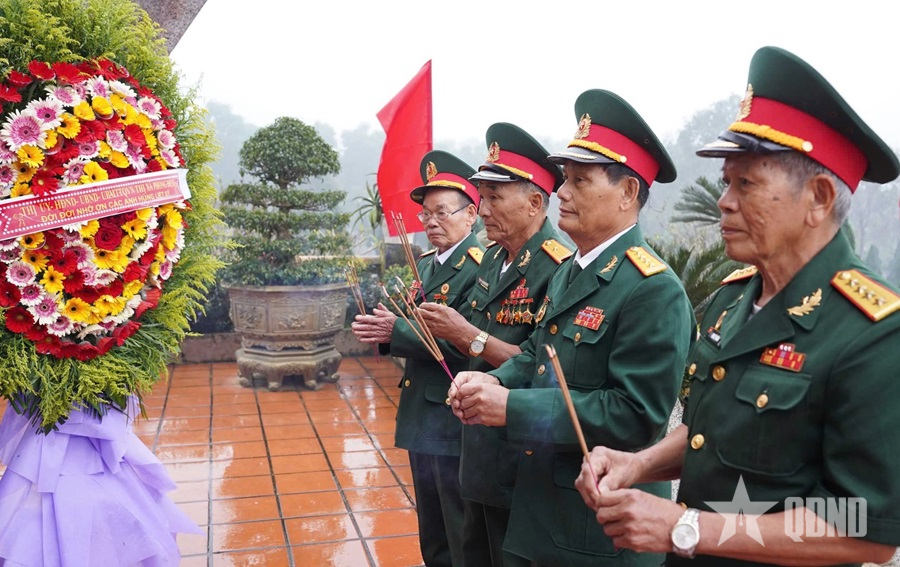
































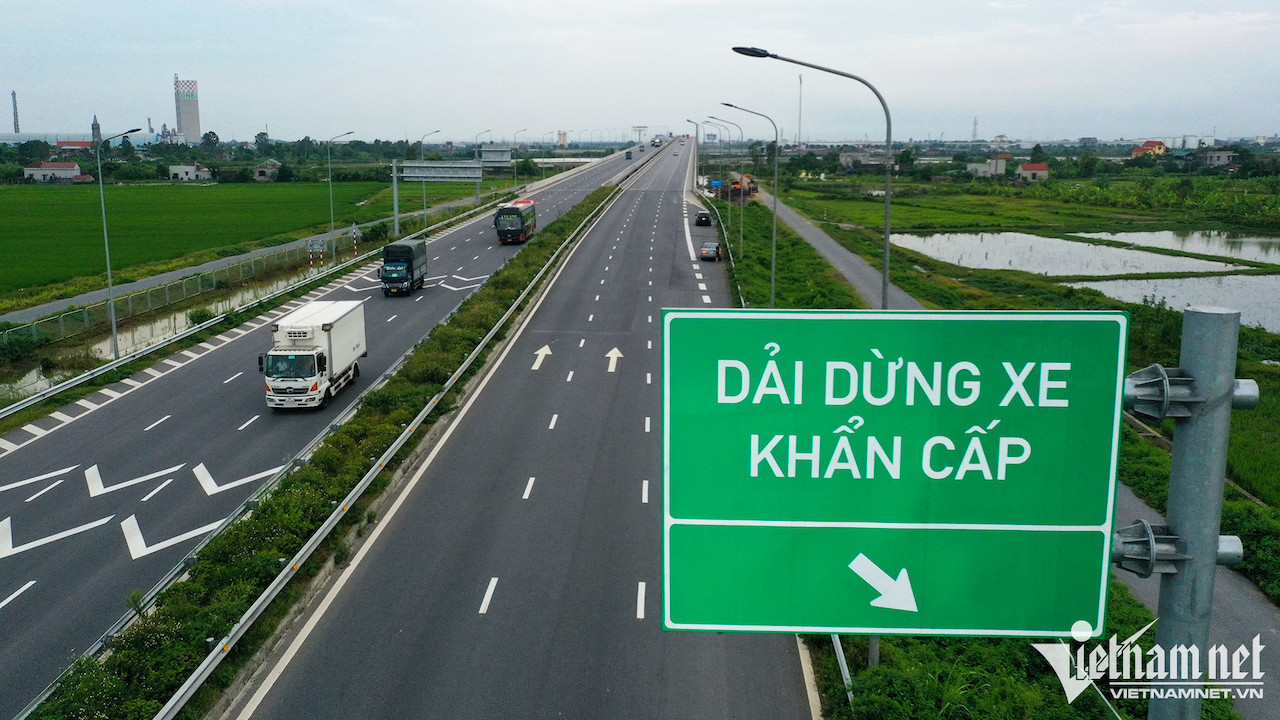


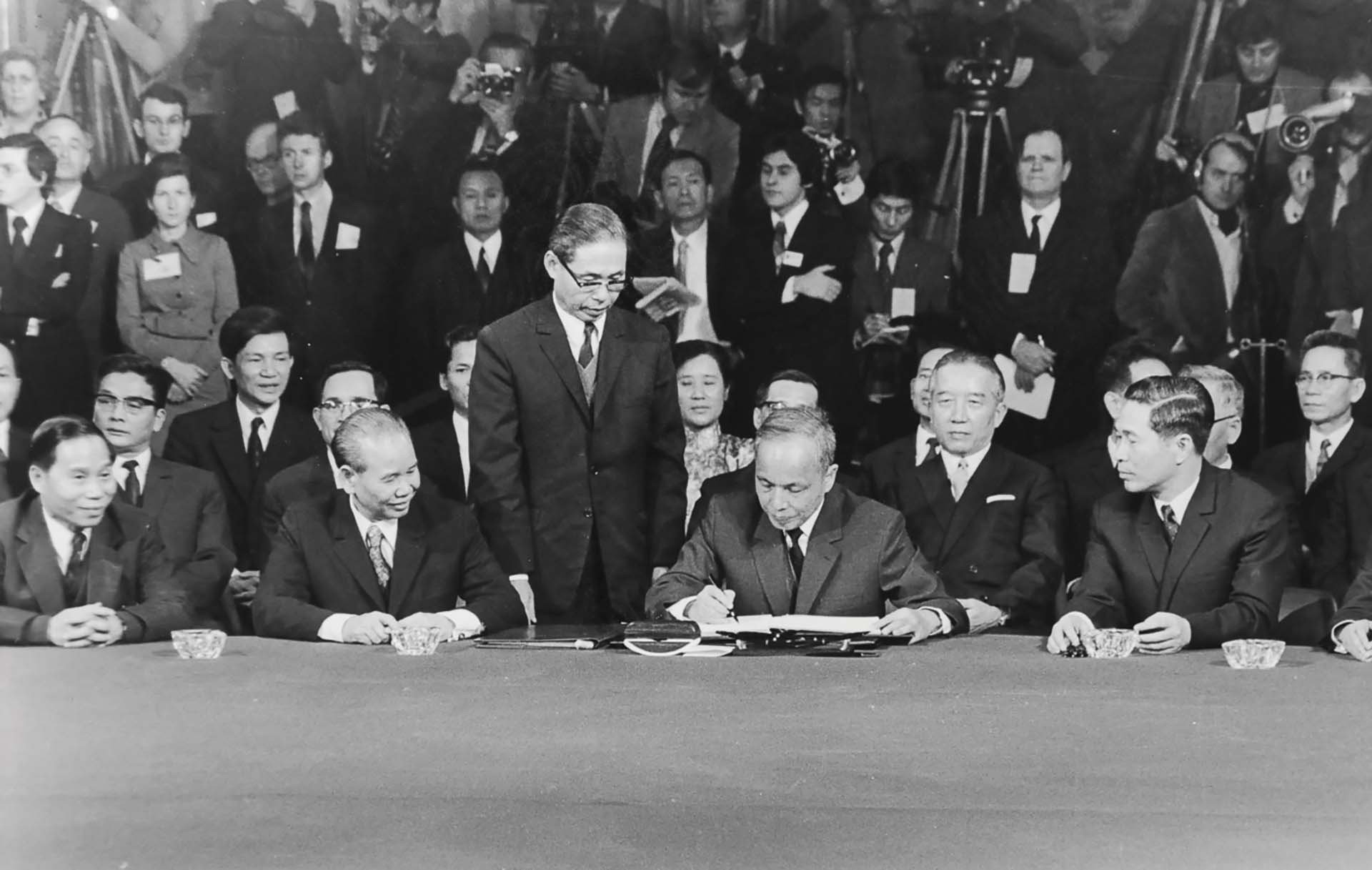








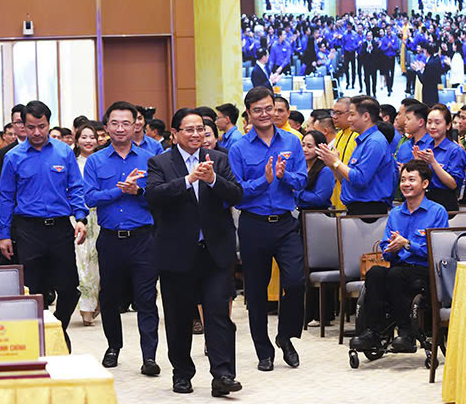


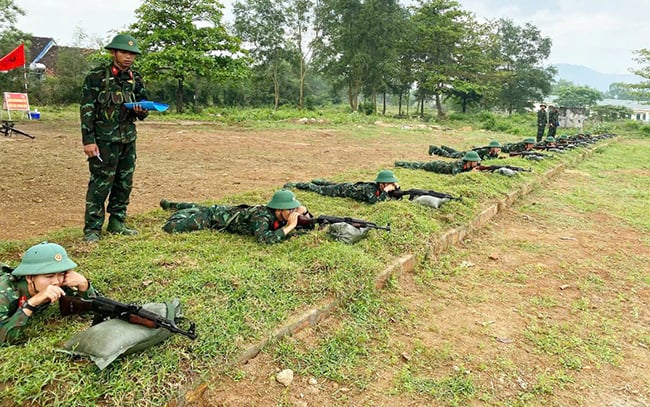


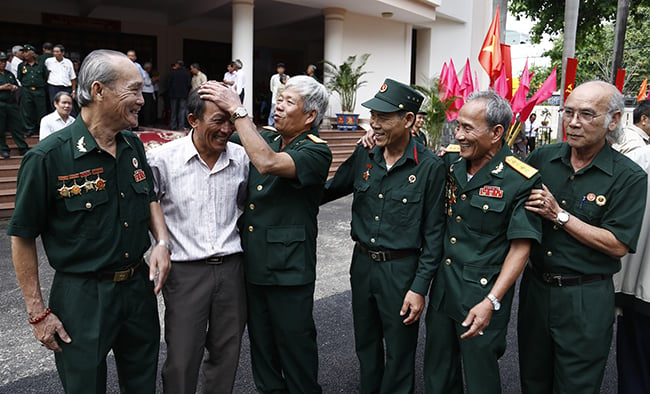

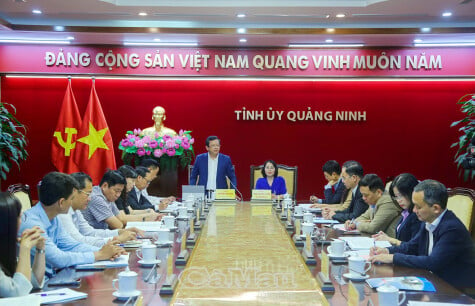




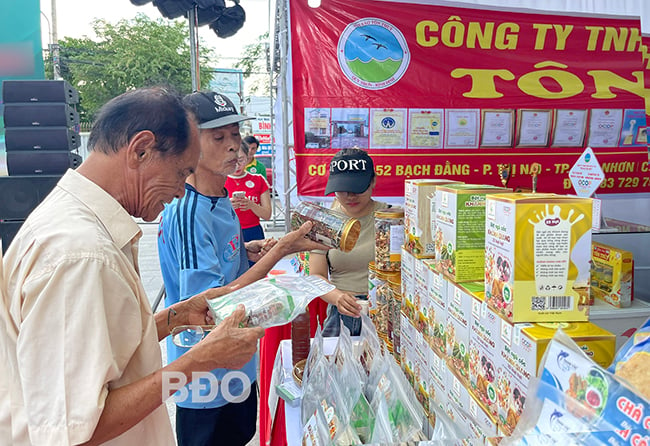


Comment (0)